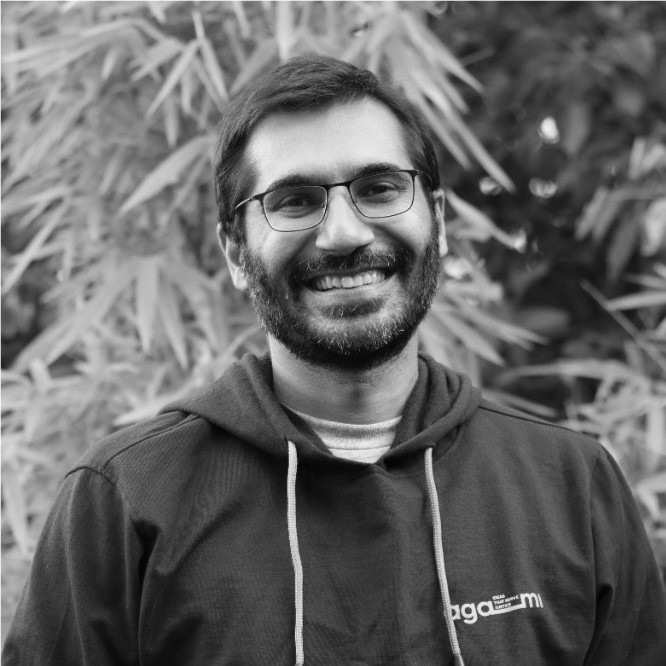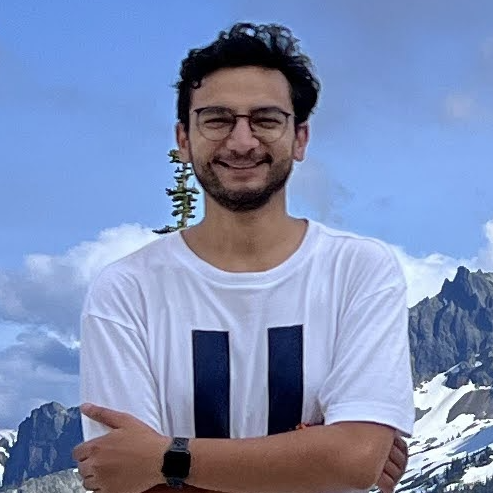WAIL 2022
Workshop on AI and Law
19th International Conference on Natural Language Processing
December 15th, 2022 | IIIT Delhi, India
3 PM to 6 PM
Venue: R&D Building - A007 A106

19th International Conference on Natural Language Processing
December 15th, 2022 | IIIT Delhi, India
3 PM to 6 PM
Venue: R&D Building - A007 A106

India, a populous country, is inundated with many pending legal cases. For example, according to National Judicial Data Grid, about 41 million cases are pending in India. Consequently, the number of legal documents has been growing almost exponentially. It is impossible to manually process these documents, so technology-based solutions are required. In recent years, AI, ML, and NLP-based technologies have impacted almost every field and facet of life, ranging from text-understanding and computer vision-based applications to biological applications. Similarly, AI-based techniques could be developed for automatically processing legal documents and making the legal system more streamlined and efficient. For example, if there was a system to automatically analyze, understand, and extract information from legal documents, it could significantly help legal practitioners. It could be an AI assistant that could augment the legal professional in multiple tasks.
Although there has been a lot of work in the application of AI and NLP techniques to process legal documents, these have primarily been restricted to non-Indian settings (e.g., China, the U.S., and Europe). Indian laws and documents are quite different from those of other countries. We have largely observed that in the Indian setting, AI researchers and legal practitioners have been working in silos and do not actively engage in discussions with each other. The purpose of the workshop is to bring together AI researchers, Legal researchers, and practitioners to come of a common platform and discuss advancing the application of technology in the legal domain. We plan to invite people from industry and academia. We will also invite lawyers and people with legal backgrounds to provide insights into the legal process that could aid the technologists. The workshop will involve talks and panel discussions on various facets of AI and law.

Joseph Pookkatt has 30 years of legal, strategic, commercial and management experience. Joseph heads the commercial and corporate practice team of APJ SLG Law Offices. He is a graduate of the National Law School of India University (Bangalore) and the College of Law, York. Joseph was also a recipient of the Chevening Scholarship in Corporate Law, (U.K.), (1996-97), the European Series Fellowship (1997) and the Fellow of the International Visitor Leadership Program 2005. He founded Indlaw, an online legal database which was subsequently acquired by Thomson Reuters in 2009. He has authored three books. He is also the chief advisor to Kronicle Research and Lex Ai India Pvt. Ltd. which are companies aligned to the future of data-driven law, legal solutions and dispute resolution mechanisms.

Saptarshi Ghosh is an Assistant Professor at the Department of Computer Science and Engineering, Indian Institute of Technology, Kharagpur. He obtained his Ph.D. in Computer Science from the same institute, and was a Humboldt Post-doctoral Fellow at Max Planck Institute for Software Systems (MPI-SWS), Germany. His research interests include Legal analytics, Social media analytics, and Algorithmic bias and fairness (on which he presently leads a Max Planck Partner Group at IIT Kharagpur). He has published more than 70 papers in peer-reviewed conferences and journals. He investigates several research projects funded by the Government as well as by the industry.
He was awarded the Institution of Engineers (India) Young Engineer Award 2017-18 in Computer Engineering discipline. His works have been awarded at top Law-AI conferences, including the Best Paper Award at JURIX 2019 and the Best Student Paper Award at ICAIL 2021. He is presently the Section Editor on Legal Information Retrieval for the Artificial Intelligence and Law journal, the most prestigious journal in Law-AI.

Surya Prakash B S has 22 years of experience in finance, tax, litigation management, research, and advocacy. Joseph is the Programme Director at DAKSH, a non-profit think tank working on law and justice reforms. He is a Chartered Accountant and a law graduate. He has handled tax and finance roles in large corporates before joining DAKSH in 2015. At DAKSH he has led and managed large national surveys, assisted courts and tribunals in their initiatives, and conducted research and published papers that have shaped the mainstream discourse on law and judicial reforms.

Sachin Malhan is the co-founder of Agami, an organization catalyzing innovation, entrepreneurship and collaborative action to advance new and improved systems of law and justice. Agami’s critical role on advancing Online Dispute Resolution and Digital Courts in India is well recognized. Before Agami, Sachin was the Executive Director of the Changemakers program of leading non-profit Ashoka. Sachin has previously co-founded three ventures in India – test prep pioneer Law School Tutorials (LST, now called CL LST), Rainmaker, a learning and talent platform that ultimately spun off Vahura and mylaw.net, and Inclusive Planet, a policy and platform venture focused on greater literary access for the visually impaired. For his work in technology, media, social impact and education, Sachin became an INK Fellow in 2010. Sachin is a graduate of National Law School, Bengaluru, and began his career with law firm Amarchand Mangaldas in their Mumbai offices.
Workshop Schedule
| Talk | Speaker | Time |
|---|---|---|
Introduction |
Ashutosh Modi |
3:00 - 3:15 PM |
| Segmenting Legal Judgments Using Rhetorical Roles Abstract
Rhetorical Role (“RR”) is a building block for any application in the field of legal analytics. It can aid in various downstream tasks such as information retrieval, predictive analytics, summarization, etc. Auto-segmentation of RR is challenging as judgments are unstructured and noisy. In view of this, we focus on the corpus comprising of MACT and S.138 cases as it constitutes approximately 10% of the total pendency and has straightforward decision parameters. We suggest integrating RR with governmental databases such as Vahan and Sarathi, which may help AI/ML models in instant verifications of documents during the investigation/trial stage, saving thousands of man hours and eventually helping courts in speedy disposal of pending cases. |
Joseph Pookkatt |
3:15 - 3:45 PM |
| Summarization of Court Case Documents: Challenges, Methods, and Analyses Abstract
Automatic summarization of legal case documents is an important task that is all the more challenging due to the unstructured nature of the text and the lack of organized datasets. In this talk, I shall describe our experiences in applying several existing summarization algorithms to this task, including supervised and unsupervised algorithms, generic text summarization algorithms, and domain-specific algorithms designed especially for the legal domain. I shall also discuss the applicability of neural summarization models on legal case documents, especially the challenges faced by neural abstractive summarization models due to the lengthy nature of such documents. |
Saptarshi Ghosh |
3:45 - 4:15 PM |
| BREAK | ||
| Extracting meanings Abstract
With the law and justice system having started the transition to digitising its operations, there is a need to collectively envision what a digitally native system should look like: its architecture; the information hierarchy; standards and protocols; interoperability; authenticity and fidelity of information. The law and justice system, like other human centric systems, is about contestation of facts, versions of events, personalities, and narratives within a very large framework of diverse laws and judicial precedents. The idiosyncrasies of this system require distinctive methods for solutions that need to be uniquely Indian that factor in socio-economic, geographic and linguistic diversity. |
Surya Prakash B S |
4:30 - 5:00 PM |
| Unlocking the Power of Collaborative AI Development for Law Abstract
AI has the potential to make justice - formal and informal, state and community-led - exponentially more accessible and inclusive. The speaker emphasizes the importance of developing critical public goods in AI that could catalyze the creation of thousands of solutions beyond the much-maligned AI judge. Public goods in translation, legal NLP, and community data could catalyze solutions such as legal guidance chatbots, rapid digital dispute resolution services, online grievance mechanisms, legal helplines, govt entitlement access tools, and intelligent legal document repositories - in every Indian language, 24x7. |
Sachin Malhan |
5:00 - 5:30 PM |
Panel Discussion |
5:30 - 6:00 PM |

IIT Kanpur